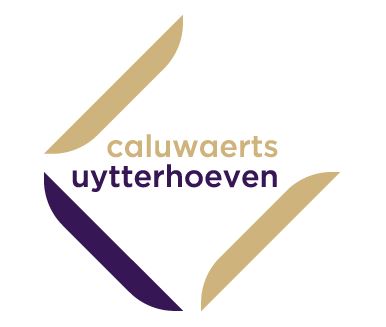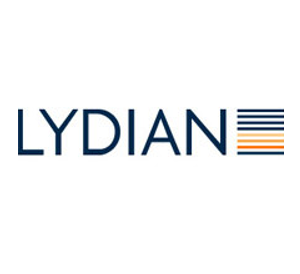Vakantiedagen en het arbeidsrecht
Mr. Kato Aerts en mr. Sarah Witvrouw (Lydian)
Webinar op dinsdag 11 juni 2024
Het nieuwe Boek 6:
de impact op de werkvloer
Mr. Chris Persyn (Cautius)
Webinar op donderdag 4 juli 2024
Intellectuele eigendomsrechten in de onderneming:
wie is eigenaar van door werknemers en dienstverleners ontwikkelde creaties?
Dr. Nele Somers (ARTES) en mr. Veerle Scheys (Mploy)
Webinar op dinsdag 23 april 2024
Tewerkstelling van buitenlandse werknemers:
nakende ingrijpende wijzigingen
Mr. Sophie Maes en mr. Simon Albers (Claeys & Engels)
Webinar op donderdag 25 april 2024
HR-aspecten bij M&A transacties
Mr. Nele Van Kerrebroeck (Linklaters)
Webinar op donderdag 16 mei 2024
Night work in e-commerce in 2020: nothing new under the sun? (Altius)
Author: Astrid Caporali (Altius)
Publication date: 17/02/2020
With e-commerce growing at an unprecedented rate all over the globe, in the past few years the Belgian legislator has taken several measures – both temporary and permanent – to make Belgium a more attractive hub for e-commerce activities. Amongst other things, such measures were meant to facilitate the introduction of night work schemes within companies. Some of these measures ended on 31 December 2019. What does this situation mean for your company and in particular for the night work schemes introduced in 2018 and 2019?
A brief reminder about the principles of night work
In principle, night work, i.e. work performed between 8 pm and 6 am is forbidden. There are, however, a number of exceptions to this principle. In 2017, an exception was introduced for all activities relating to e-commerce.
Even though night work was as from that moment in theory possible, the introduction of a scheme involving night work between midnight and 5 am still required that companies with a trade union delegation conclude a collective bargaining agreement (“CBA”) with all the trade union organisations represented in the trade union delegation. For undertakings without a trade union delegation, following the procedure to amend the works rules was sufficient. Finally, night work between 8 pm and midnight as well as work starting from 5 am were to be introduced within the company by a simple amendment to the work rules (through the proper procedure), regardless of whether or not the company has a trade union delegation.
Moreover, any procedure for the introduction of night work between midnight and 5 am must always be preceded by the phase of consultation with the (representatives of the) employees on any adjustments to be made to the working conditions.
In the e-commerce sector, it was clear that in the majority of cases no agreement could be reached between the trade unions and the management (especially because the agreement of all trade union organisations was required), with unions often imposing unrealistic financial requirements as a condition for their agreement.
Easing of the procedure for introducing a night work scheme
Therefore, the legislator introduced two measures in the e-commerce sector to facilitate the introduction of night work.
The first measure is definitive and concerns all aspects of e-commerce, i.e. of both goods and services. According to this new provision, companies with a trade union delegation can introduce night work between midnight and 5 am by means of an ‘ordinary’ CBA, i.e. an agreement signed with a single trade union organisation (as opposed to the previous requirement of signing the CBA with all the trade union organisations represented in the trade union). The CBA automatically amends the work rules (and the employment contracts).
The second measure was temporary, running from 1 January 2018 to 31 December 2019, and was limited to companies involved in the e-commerce of movable goods (thus excluding the e-commerce of services). Under this temporary measure:
- On the one hand, companies without a trade union delegation could introduce night work between midnight and 5 am by concluding a CBA with a single trade union organisation (on top of the existing possibility of introducing such a scheme by modifying the work rules);
- On the other hand, companies with a trade union delegation had the option of simply modifying the work rules to introduce night work between midnight and 5 am (on top of the existing possibility of introducing such a scheme by concluding a CBA with a single trade union organisation);
- Companies, regardless of whether they have a trade union delegation, could introduce work between 8 pm and midnight as well as work starting from 5 am within the company by concluding a CBA with one single trade union organisation (on top of the existing possibility of introducing such a scheme by modifying the work rules).
In short, all companies active in the e-commerce of movable goods, regardless of whether they had a trade union delegation, could during the transition period chose to introduce any type of night work either by concluding a CBA with a single trade union organization OR by amending their works rules.
The CBA automatically amends the work rules (and the employment contracts).
The consultation procedure still applied in full.
As mentioned, this transition period came to an end on 31 December 2019.
What does this mean for the night work schemes your company introduced during the 2018-2019 transition period?
Night work scheme introduced in 2018-2019 via the transition measures must in principle have ended by 1 January 2020. If your company would like to maintain the scheme, then it must conclude a new CBA with a least one trade union organisation in which the parties agree to extend the scheme.
Therefore, it is necessary to conclude a (new) CBA that will automatically amend the works rules (and the employment contracts).
E-commerce companies without a trade union delegation can also reintroduce night work via a simple modification of their work rules. However, it will in principle be necessary to obtain the employee’s consent if such a new scheme entails a change to their working regimes (from day shifts to night shifts or a mix of both).
If your company has introduced night work but without making use of the transition measures, then it does not need to take any measures.
What does this mean if your company has not made use of the temporary measures and would like to introduce night work in 2020?
Since 1 January 2020, employers can no longer use the transition measures. In other words, employers with a trade union delegation are required to conclude a CBA with a least one trade union organisation in order to introduce night work between midnight and 5 am. It is no longer possible for them to introduce night work between midnight and 5 am by merely modifying the work rules.
On the other hand, employers without any trade union delegation can as from now only introduce night work between midnight and 5 am by modifying the work rules. If this has the advantage of lowering the administrative burden and contacts with the permanent representatives of one of the recognised trade unions, then modifying the work rules does not entail an automatic modification of the individual employment contracts. This means that your company will in principle have to obtain each employee’s individual consent regarding a change to their (day) working schedules to night work schedules (or a mix of both).
Finally, as from 1 January 2020, work between 8 pm and 12 am and work as from 5 am can only be introduced within the company by adapting the work rules. No CBA can be concluded in this respect.
Summary
» Bekijk alle artikels: Arbeid & Sociale zekerheid


















